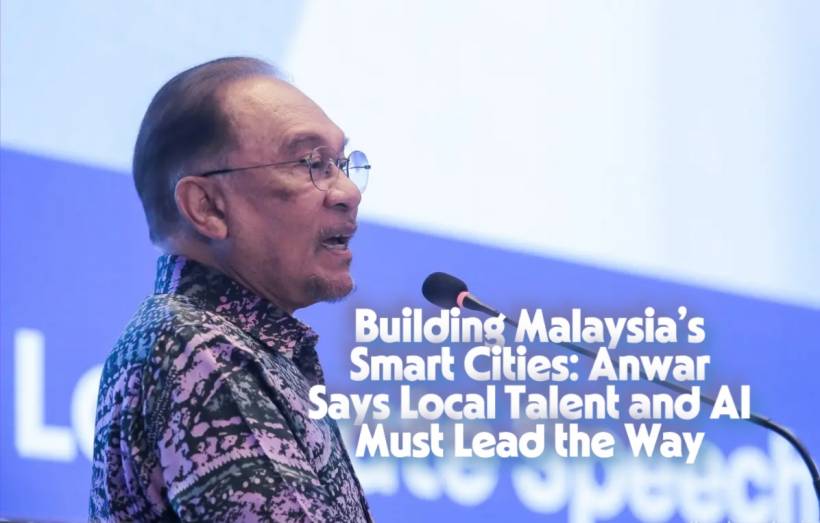When we talk about "smart cities," it's easy to imagine futuristic skylines filled with flying cars and glowing billboards. But in reality, smart cities are about something more practical: using technology to solve everyday challenges in urban life. Prime Minister Datuk Seri Anwar Ibrahim made it clear at the Smart City Expo Kuala Lumpur that Malaysia's journey towards building smart cities must be led by local talent and powered by artificial intelligence (AI).
Why Smart Cities Matter in Malaysia
Malaysia's cities are growing rapidly—not just in terms of population, but also in complexity. Urban areas are facing issues such as:
Anwar highlighted that AI offers the right tools to address these challenges head-on. For example, AI-driven traffic systems can reduce road congestion, smart sensors can optimise energy and water use, and predictive analytics can help authorities respond faster to floods or other natural disasters. In short, smart cities are not just about convenience—they are about resilience, cost savings, and sustainability.
AI as the Backbone of Future Cities
Anwar's message was simple: AI must be at the core of Malaysia's smart city transformation. From public utilities to city planning, AI can cut inefficiencies, reduce the environmental footprint, and make cities safer for residents.
Even in government services, AI can make a big difference. Automated systems could provide faster and more consistent responses to citizens, while also improving transparency and fairness. For a country that values stability and justice, this is a major step forward.
Local Talent: The True Engine of Progress
While AI is the tool, Anwar stressed that Malaysians must be the drivers. He made a strong point that smart cities in Malaysia cannot simply copy-paste solutions from overseas. Instead, they should reflect our local values, culture, and unique needs.
This means:
In other words, if Malaysia wants smart cities to truly succeed, it must invest in its people first.
Preparing Malaysians for the Digital Age
To support this vision, Anwar announced that Digital Nasional Berhad (DNB) and Ericsson will roll out a 21st-century education programme aimed at upskilling more than 40,000 public-sector personnel. This initiative will focus on building expertise in:
By empowering government officials at municipal and national levels, Malaysia ensures that decision-makers and implementers alike are equipped with the knowledge to make technology-driven cities a reality.
Malaysia's Path to Smarter, Safer, and Sustainable Cities
The takeaway from Anwar's keynote is clear: Malaysia's smart cities cannot be outsourced. They must be homegrown, built for Malaysians, and powered by Malaysians. With AI as the backbone and local talent as the driver, the country can reduce costs, improve quality of life, and stand tall as a regional leader in smart city innovation.
If done right, Malaysia's smart cities could set the benchmark not just in Southeast Asia but globally—showing how technology and local creativity can come together to create inclusive, resilient, and sustainable urban environments.





Comments